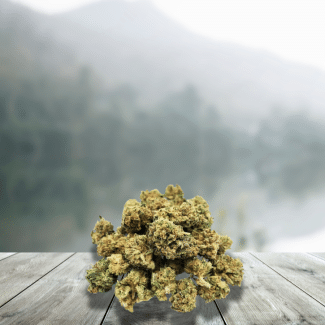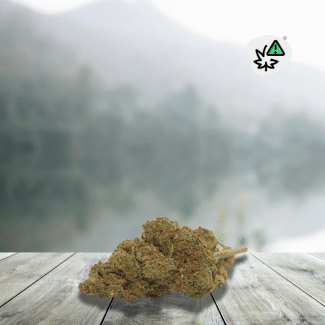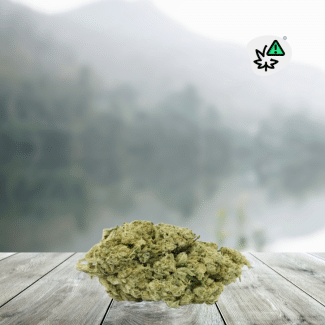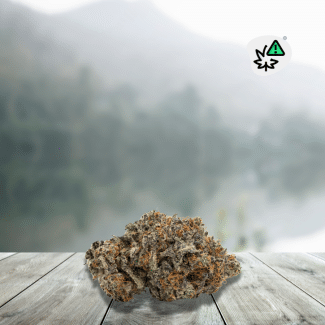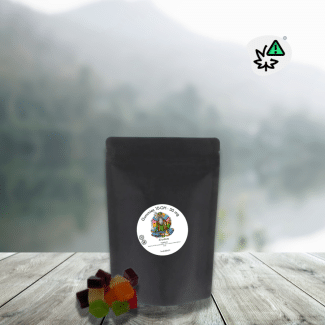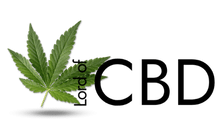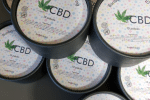
The rise of microdosing: a growing curiosity
Microdosing , or the act of consuming sub-perceptual doses of psychedelics or cannabis, has attracted increasing attention in recent years. This practice involves taking very small amounts of these substances, usually about 1/10th to 1/20th of the normal recreational dose, with the goal of benefiting from the positive effects without experiencing hallucinations or other pronounced side effects.
An increase in Google searches
According to a recent study published by the American Medical Association (AMA) in the JAMA Health Forum, Google searches for microdosing increased dramatically between 2015 and 2023. Led by researchers at the University of California, San Diego, this study showed a significant correlation between local and state legislative reforms and growing public interest in microdosing.
Main conclusions of the study
The study analyzed Google search data from 2010 to 2023, highlighting several key points:
- Initial stability followed by an explosion of searches : Searches on microdosing remained relatively stable until 2014, before experiencing a 13.4-fold increase between 2015 and 2023.
- Impact of local and national laws :
- Local psychedelic decriminalization laws led to an increase of 22.4 searches per million.
- Statewide psychedelic reforms were associated with an increase of 28.9 searches per 10 million.
- Adult-use cannabis laws led to an increase of 40.9 searches per 10 million.
- The legalization of medical cannabis resulted in an increase of 11.5 searches per 10 million.
Importance of safety and efficiency
The study authors emphasize the need for the medical community to ensure safe and effective treatments based on evidence. With the growing interest in psychedelics and cannabis for therapeutic purposes, it is crucial to conduct rigorous research to establish a solid evidence base for their safety and effectiveness.
In the absence of such research, individuals may turn to unproven alternative therapies, exposing themselves to potential risks. Eric Leas, assistant professor of public health and lead author of the study, highlighted concerns related to product impurity and legal risks associated with the use of substances like psilocybin, still classified on Schedule I of federal law.
An urgent need for clinical research
The study concludes that it is essential to conduct rigorous clinical studies to evaluate the safety profile and potential benefits of microdosing. This research will inform evidence-based practices and develop policies consistent with the public interest. Researchers are calling for increased population surveillance to understand who is microdosing, why, and how these practices are evolving with legislative changes.
The broader context of psychedelic and cannabis reform
The legislative landscape in the United States has evolved significantly, with a majority of states adopting some form of cannabis legalization and a growing number of states and localities working to reform psychedelics. The director of the National Institute of Drug Abuse (NIDA) even declared that the psychedelic reform movement is now inevitable.
Federal recognition of the potential benefits of psychedelics
Despite continued federal prohibition, a U.S. federal agency recently recognized the potential benefits of psychedelics for treating a variety of disorders, including alcoholism, anxiety, and depression. Government-funded research is also exploring the effects of psilocybin on pain, migraines and other psychiatric conditions.
Recent research findings on psilocybin
Psilocybin, a compound commonly used for microdosing, has been the subject of numerous studies. A study showed that a single psilocybin experience is unlikely to change individuals' religious or metaphysical beliefs, although it may influence their perception of consciousness in animals and plants.
Another study suggests that full-spectrum psychedelic mushroom extract may have more potent effects than synthetic psilocybin, implying a possible "entourage effect" similar to that seen with cannabis.
CBD Power Boost and CRD (Cannabinoid with Dynamic Receptors): two promising innovations
As part of this growing exploration of cannabis-based therapies, two products stand out for their innovation and their promises: CBD Power Boost and CRD (Cannabinoid with Dynamic Receptors) .
CBD Power Boost
CBD Power Boost is an advanced formulation of CBD designed to maximize the therapeutic benefits of cannabidiol. With an optimized concentration and the addition of specific terpenes, this product promises increased effectiveness for pain relief, anxiety reduction and improved sleep. Users report an enhanced sense of well-being without the mind-altering effects associated with other cannabinoids like THC.
Incorporating CBD Power Boost into a microdosing regimen can potentially provide significant benefits for those looking to maintain a state of mental clarity while benefiting from the calming properties of CBD. This option could be particularly useful for professionals and students looking to improve their focus and performance without compromising their alertness.
CRD (Cannabinoid with Dynamic Receptors)
CRD (Cannabinoid with Dynamic Receptors) represents an advance in the understanding and application of cannabinoids. This unique compound interacts specifically with the body's endocannabinoid receptors, providing targeted and personalized therapeutic effects. Preliminary studies indicate that CRD may play a crucial role in the management of chronic pain, inflammation and certain neurological disorders.
This next-generation cannabinoid fits perfectly into a microdosing approach, allowing users to benefit from its effects in a controlled and precise manner. By tailoring doses based on individual needs, CRD may offer a more flexible and potentially more effective alternative to traditional cannabinoids.
Conclusion
Microdosing represents a growing trend, driven by legislative reforms and public interest in innovative therapeutic alternatives. However, further research is crucial to ensure the safety and effectiveness of these practices. By better understanding who microdoses, why, and how, we can hope to develop safer, more informed policies and practices.
Incorporating innovative products like CBD Power Boost and CRD into microdosing regimens could revolutionize the way we perceive and use cannabinoids for wellness. These promising advances pave the way for better management of mental and physical health, while ensuring a high level of safety and effectiveness.

